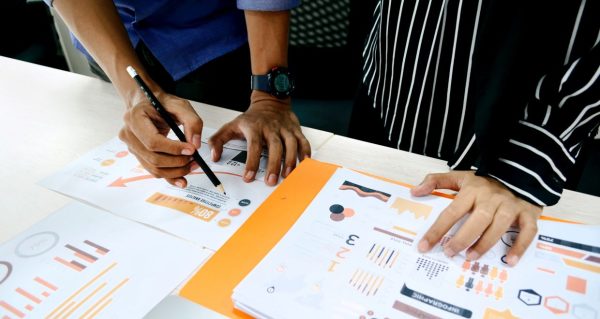Technology and Development
A Q&A with the course leader of Leveraging Big Data for Business Intelligence
Technology and Development
A Q&A with the course leader of Leveraging Big Data for Business Intelligence
Meet Russ Hunter, Senior Software Engineer and researcher at the University of Cambridge
What are the Principal Software Engineer's Current Research Interests in Big Data and Business Intelligence?
I am currently working in the industry as a principal software engineer but my research interests include neural networks, online education, computer vision and image processing.
What aspects of big data-driven decision-making in software engineering are most thrilling to you?
Within my software engineering role, I have designed and built a lot of cool features that have had substantial direct improvements leveraging a lot of different methods. This has included building bespoke solutions using image processing, deep learning neural networks and leveraging user events and advances in the field. My favourite part of the process is designing the feature and architecting the solution. Finding novel insights and implementing a feature that users enjoy and find value in is what I live for and my recent project that integrates deep learning for personalisation is generating a lot of interest in the company.
What do you consider as the main challenges in the realm of big data-driven decision-making?
For me, it is half trusting the data and half resisting falling into the causation and correlation trap. A lot of the time, analysis of the data shows promise in a particular area and it is easy to make assumptions about directions only to find later that the findings were not quite as important as it was first thought. There are things that can be done to mitigate this risk and being agile is a large part of software engineering.
How did your impactful work at Cambridge, developing bespoke online learning tools and learning analytics, contribute to nationwide educational initiatives and the design of a mobile app for GCSE maths, with a focus on Big Data?
Where to start, I have been very lucky to have worked on some very interesting projects. My work at Cambridge was certainly the most fulfilling and close to my heart. In the project, we built a cool suite of bespoke online learning tools including a website, mobile app and a game. The projects solid foundations allowed for other large scale educational projects to be developed that have helped lots of young people across the country in Physics, Maths, Computer Science and Engineering. I loved building bespoke learning analytics tools, understanding user behaviour and how our failures were overcome to help design a cool mobile app for teaching GCSE maths on the go. It is not groundbreaking or overly scientific like my work in Formula One, Computational Neuroscience or the innovative feature development in the industry but I have a deep personal interest in the social impact of improving education for young people to help them achieve their potential.
Who/what did you have in mind when conceiving this course?
When I first started my PhD, I was thrown in at the deep-end of a very complex interdisciplinary project. My undergraduate was in Mathematics with Computer Science and although Computational Neuroscience is effectively just building lots of models and simulating them using computers, there was a lot of neurobiology that I didn’t know, in fact, all of it. I enjoyed reading papers and getting deeper into the detail and trying to solve problems in an engineering style, running simulations and iterating the process and linking it back to the reading. Within every research role, effectively I have been the product leader, data scientist, designer and engineer. In my current role, I have had a lot of freedom to effectively carry out this kind of role and gained great success and I feel that giving strategic thinkers, like product owners, the technical skills and awareness would be something that would be beneficial in this heavily data-driven focussed industry.
What do you hope learners will gain from this course?
At least awareness of the different parts of the tech involved so that learners can talk confidently with engineering, data scientists and other stakeholders with confidence. At most, technical skills allow them to understand how to navigate data warehouses, carry out some basic analysis and perhaps obtain preliminary results that would help speed up the feature development processes and give information for data scientists and engineers to further investigate with confidence.
Why do you think this is an important area?
In recent years, in the world of business, data is everything. Understanding this data has led to a boom in the fields of Data Science, Data Engineering and Machine Learning to name but a few. The innovations are shown daily and the effects of good decision making can make a significant difference to a business’s performance in the market place and feature development has a large part to play.
Who are your inspirations within this field?
Pretty much all of the big companies who blow my mind everyday with their innovations. Apple, Google, Amazon etc. At the moment, I am building a large feature that is loosely modelled on some of the core features at Amazon, specifically personalisation.
What books or other media have you found useful or inspirational in this area?
I am a bit of a geek. I tend to read a lot of tech blogs as web tech is such a fast-moving field but https://towardsdatascience.com/(Opens in a new window) is where I like to go when I am investigating a machine learning model. The book, “Hands-On Machine Learning with ScikitLearn and Tensorflow” is great and something I bought when I became more interested in Deep Learning whilst working in the ML lab at Cambridge with all these amazing projects going on around me. I am a big fan of Udacity if I want to learn some new tech. I am currently reading about quantum machine learning to get ready for the quantum revolution, but I haven’t finished the book yet!
What have your students taught you over the years?
Humility, patience and how important reflective practice is.
Explore our range of online courses led by University of Cambridge academics, and learn from thought leaders at the forefront of academic research. Visit our website for more information: advanceonline.cam.ac.uk(Opens in a new window).


